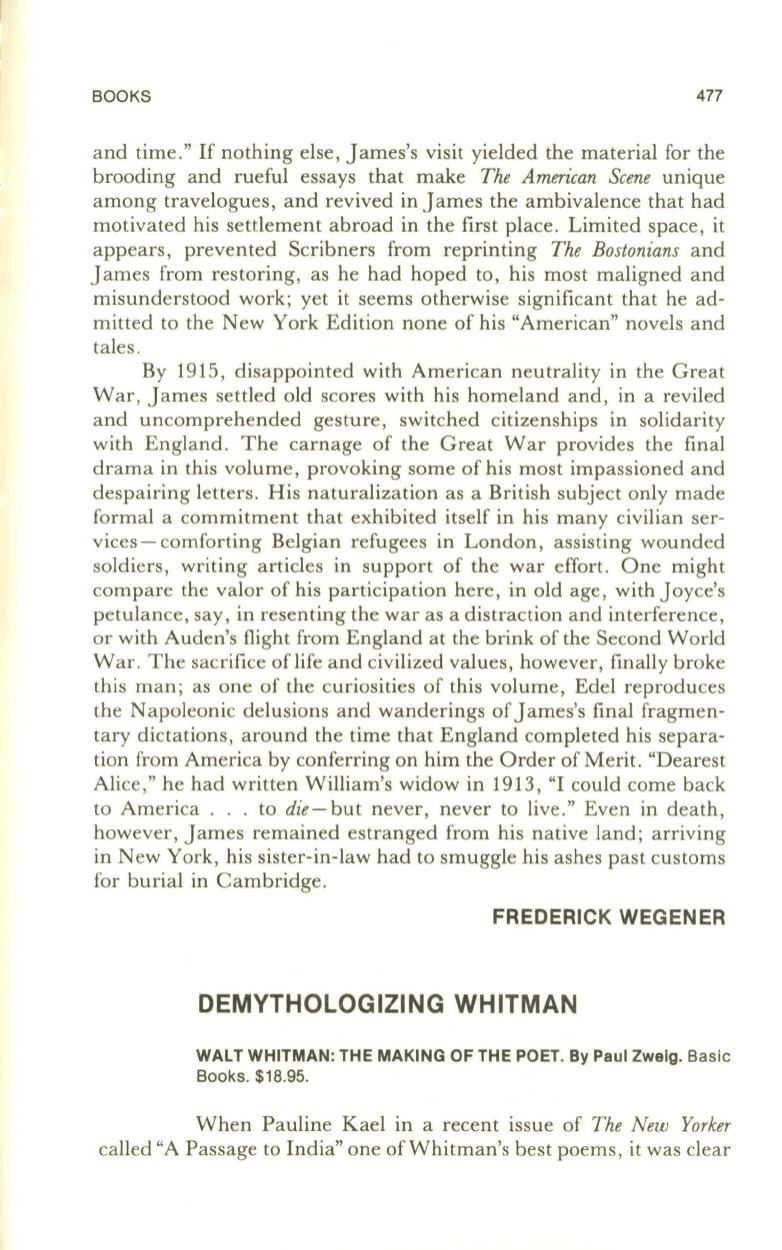
BOOKS
477
and time."
If
nothing else, James's visit yielded the material for the
brooding and rueful essays that make
The American Scene
unique
among travelogues, and revived in James the ambivalence that had
motivated his settlement abroad in the first place. Limited space, it
appears, prevented Scribners from reprinting
The Bostonians
and
James from restoring, as he had hoped to, his most maligned and
misunderstood work; yet it seems otherwise significant that he ad–
mitted to the New York Edition none of his "American" novels and
tales .
By 1915, disappointed with American neutrality in the Great
War, James settled old scores with his homeland and, in a reviled
and uncomprehended gesture , switched citizenships in solidarity
with England. The carnage of the Great War provides the final
drama in this volume, provoking some of his most impassioned and
despairing letters. His naturalization as a British subject only made
formal a commitment that exhibited itself in his many civilian ser–
vices - comforting Belgian refugees in London, assisting wounded
soldiers, writing articles in support of the war effort. One might
compare the valor of his participation here, in old age , with Joyce's
petulance, say, in resenting the war as a distraction and interference,
or with Auden's flight from England at the brink of the Second World
War. The sacrifice oflife and civilized values, however, finally broke
this man; as one of the curiosities of this volume, Edel reproduces
the Napoleonic delusions and wanderings of James's final fragmen–
tary dictations, around the time that England completed his separa–
tion from America by conferring on him the Order of Merit. "Dearest
Alice ," he had written William's widow in 1913, "I could come back
to America ... to
die-
but never, never to live ." Even in death,
however, James remained estranged from his native land ; arriving
in New York, his sister-in-law had to smuggle his ashes past customs
for burial in Cambridge.
FREDERICK WEGENER
DEMYTHOLOGIZING WHITMAN
WALT WHITMAN: THE MAKING OF THE POET.
By
Paul Zweig.
Basic
Books. $18.95.
When Pauline Kael in a recent issue of
The New Yorker
called "A Passage to India" one ofWhitman's best poems, it was clear


